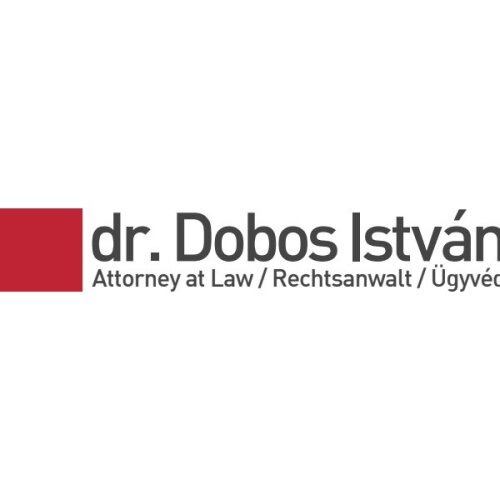Best Securities Lawyers in Budapest
Share your needs with us, get contacted by law firms.
Free. Takes 2 min.
List of the best lawyers in Budapest, Hungary
About Securities Law in Budapest, Hungary
Securities law in Budapest, Hungary encompasses the regulations and legal practices that govern the issuance, trading, and management of financial instruments like stocks, bonds, and other investment vehicles. This field of law is designed to protect investors, maintain fair and efficient markets, and facilitate capital formation. Budapest, being a vital financial hub, has a sophisticated regulatory framework overseen by multiple government agencies, including the Hungarian National Bank (Magyar Nemzeti Bank) and the Hungarian Financial Supervisory Authority.
Why You May Need a Lawyer
Engaging in transactions involving securities can be complex and laden with legal risks. Here are some common situations in which you might need legal assistance:
- Investment Disputes: If you believe you have been a victim of securities fraud or face disputes with investment advisors or asset managers.
- Compliance Issues: For corporations issuing securities, ensuring compliance with local regulations and avoiding penalties.
- Corporate Transactions: During mergers and acquisitions where proper valuation and legal due diligence on securities are crucial.
- Initial Public Offerings (IPOs): Offering shares to the public for the first time requires navigating complex regulatory landscapes.
- Insider Trading Allegations: If accused of using non-public information for trading decisions.
Local Laws Overview
The key aspects of securities laws in Budapest are influenced by both national and European Union regulations. Here are some critical components:
- Securities Markets Act: Governs the offering and trade of securities, aiming to protect investors and maintain market integrity.
- Capital Markets Act: Regulates financial markets, including stock exchanges, ensuring transparent and fair trading practices.
- Accounting Act: Guides how financial information should be reported and disclosed by companies issuing securities.
- Investment Services Act: Covers services provided by investment firms, including licensing and operational regulations.
- EU Regulations: Directives like MiFID II significantly shape the regulatory framework and investor protections in Hungary.
Frequently Asked Questions
1. What is the role of the Hungarian National Bank in securities regulation?
The Hungarian National Bank (MNB) plays multiple roles, including overseeing financial markets, ensuring market integrity, and protecting investors. It also enforces compliance with relevant laws and regulations.
2. What are the primary types of securities available in Budapest?
The primary types include stocks (equities), bonds (debt securities), mutual funds, derivatives, and ETFs. Each serves different investment needs and risk profiles.
3. How does insider trading get regulated?
Insider trading is regulated under comprehensive laws that prohibit trading based on non-public, material information. Violations can lead to severe legal consequences, including fines and imprisonment.
4. Can foreign investors participate in Hungarian securities markets?
Yes, foreign investors can participate, benefiting from Hungary's open and accessible capital markets, subject to certain regulatory requirements and tax considerations.
5. What should I do if I suspect securities fraud?
If you suspect securities fraud, it is crucial to contact a securities lawyer immediately to evaluate your case and potentially notify the regulatory authorities.
6. Are there specific rules for Initial Public Offerings (IPOs)?
Yes, companies must comply with stringent regulatory requirements, including prospectus filings, disclosures, and meeting the criteria set by the stock exchange where they plan to list their shares.
7. What is the Budapest Stock Exchange (BSE)?
The BSE is the primary stock exchange in Hungary, providing a platform for trading various securities, including shares, bonds, and derivatives.
8. How are securities disputes typically resolved in Hungary?
Securities disputes can be resolved through litigation in the courts or through alternative dispute resolution mechanisms such as arbitration or mediation.
9. What are Collective Investment Schemes?
Collective Investment Schemes, including mutual funds and ETFs, pool investors' money to invest in diversified portfolios of securities, managed by asset management companies.
10. What documentation is required for issuing securities?
Issuing securities requires a range of documentation, including a prospectus, financial statements, and compliance filings with relevant regulatory bodies.
Additional Resources
For those seeking further information or assistance, the following resources may be helpful:
- Hungarian National Bank (MNB)
- Budapest Stock Exchange (BSE)
- Hungarian Financial Supervisory Authority
- Local Securities Law Firms
- Investment Advisory Services
Next Steps
If you require legal assistance in the field of securities in Budapest, Hungary, consider taking the following steps:
- Consult a Specialist: Contact a legal professional specializing in securities law to discuss your situation and obtain tailored advice.
- Prepare Documentation: Gather all relevant documentation, including contracts, statements, and correspondence, to facilitate your legal consultation.
- Evaluate Options: Together with your lawyer, evaluate all possible legal options, taking into account the potential outcomes and implications.
- Stay Informed: Keep abreast of any changes in securities regulations and market trends that may affect your case or investment.
Lawzana helps you find the best lawyers and law firms in Budapest through a curated and pre-screened list of qualified legal professionals. Our platform offers rankings and detailed profiles of attorneys and law firms, allowing you to compare based on practice areas, including Securities, experience, and client feedback.
Each profile includes a description of the firm's areas of practice, client reviews, team members and partners, year of establishment, spoken languages, office locations, contact information, social media presence, and any published articles or resources. Most firms on our platform speak English and are experienced in both local and international legal matters.
Get a quote from top-rated law firms in Budapest, Hungary — quickly, securely, and without unnecessary hassle.
Disclaimer:
The information provided on this page is for general informational purposes only and does not constitute legal advice. While we strive to ensure the accuracy and relevance of the content, legal information may change over time, and interpretations of the law can vary. You should always consult with a qualified legal professional for advice specific to your situation.
We disclaim all liability for actions taken or not taken based on the content of this page. If you believe any information is incorrect or outdated, please contact us, and we will review and update it where appropriate.

















